Society moves backwards into devious times
The pandemic causes social regression and increases bad behavior in students
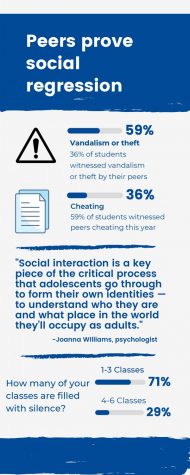 Now there are two kinds of people in this school: those who use the bathroom and those who destroy it.
Now there are two kinds of people in this school: those who use the bathroom and those who destroy it.
The high school dynamic changed since the pandemic. Society regressed, bringing misbehavior, awkward silence and cheaters into the building. Now there are two kinds of people in this school: those who use the bathroom and those who destroy it.
“There are a lot of students who are really struggling with being back at school because we’ve been somewhat socially isolated for a really long time and it’s kind of uncomfortable to try and re-insert yourself into an environment that you really haven’t been fully engaged in for a long time,” counselor Lindsey Dunn said. “In some ways, it feels awkward not really knowing exactly how to engage. I feel like some people are really choosing to just step back and let things happen around them rather than jumping in and engaging.”
Initially, post-quarantine life consisted of social awkwardness as the biggest concern aside from health; but in September, a TikTok user posted a video of themselves with a box of allegedly stolen disposable masks from a school, according to nj.com. The TikTok post acquired 7.2 million views within days. Social media users dubbed the heist “devious licks,” meaning to steal something. This situation catapulted from stealing a box of masks to vandalism across the country, particularly in schools.
Since then, teens continue to partake in vandalizing school property, usually bathrooms, by stealing soap dispensers and whatever else can be easily removed from buildings. At Eisenhower, a custodian walked into the mens’ bathroom to witness a soap dispenser beaten in, along with a missing toilet seat– all in the name of devious licks and gaining views.
“We’ve been pretty fortunate, as we haven’t seen too much of it and that’s because we have a great student body. We’ve tried to get ahead of it with the messaging; but we’re not immune to it, we’ve still been impacted by it. It’s primarily been the soap dispensers and we had a toilet seat that was removed,” principal Jared McEvoy said. “You know, I’m not sure exactly what that does, other than make a toilet pretty much useless for everybody; but that’s pretty much what we’ve seen in terms of the most recent devious licks challenge.”
The “licks” are ranked from least to most devious, with the more deceitful gaining more attention from peers. Items stolen range from toilet paper rolls to parking signs to security signs.
“Try to explain to mom or dad why you felt the need to rip a soap dispenser off the wall. You know those are difficult conversations to have,” McEvoy said.
“What it boils down to is just having a sense of students knowing what’s right and wrong. We just need to make sure we’re making good decisions at all times and not putting ourselves in a position where we’re going to be getting ourselves into some trouble possibly.”
Consequences of the social media challenge result in administrative action for students responsible for the negative behavioral actions. Suspension and or restitution are the main consequences, according to McEvoy. Restitution, which means to restore something to its original state, could also involve paying for damages.
“When you’re damaging property, other people’s property, you are affecting other people—people who want to use those bathrooms and wash their hands,” school resource officer Jim Knobelsdorf said.
“We have probably, out of the 1700 students here, about 600 who drive their cars here. And if their car gets damaged they’re right in my office saying: my mirror got hit, somebody hit my car, somebody scratched my car, somebody did this, somebody did that. Well, it’s no different than the bathroom. It’s property. And if it happened to them, they’d be crying to me wanting somebody to resolve it, fix it and find out who did it. But, when it happens to the bathroom, it’s not such a big deal to them.”
Destroying school property is considered malicious destruction of property. The charge brings a fine of up to $200 and a 93-day misdemeanor. More extensive damage results in a $200-1000 fine and a year misdemeanor, while anything over $1000-10,000 catches a four year felony, according to Knobelsdorf. In Shelby Township at another school, students have been charged criminally for destruction of property and it stays on their record, according to Knobelsdorf. When applying to colleges, any criminal actions on a student’s record will be reviewed and may affect ability to get in.
“If it continues, I think what the schools are going to be forced to do is shut down a couple bathrooms and you’re going to be limited to one or two bathrooms [throughout] the whole building. There’ll be somebody outside that bathroom [and] only one or two people will be allowed in at a time and every time when they leave, it’ll be inspected. If there’s anything damaged, I guess they’ll know who did it. It’s going to make it real hard for everybody who’s waiting to use the bathroom, but they’re not going to have a choice because [the school] can’t keep replacing it. There’s only so much funding.” Knobelsdorf said.
In attempts to stop the trend, TikTok banned videos of school property destruction starting Sept. 16. The challenge does not follow their community guidelines and participating is commended. The hashtag and variations of the hashtag were also deleted in hopes of stopping the trend.
“I think they are a crime, but still hilarious,” senior Stuart Hendricks said. “It does suck walking all the way across the school to go to the bathroom.”
While this social media trend and behavior could boil down to high school students’ immaturity, the misbehavior doesn’t end there and some say the answer lies no further than the metaphorical mask on some students’ faces. The origin of students’ negative behavior can be traced back to March 13, 2020—the day Michigan schools shut down, along with the regular structure and social environment of society. Social regression began and misbehavior increased.
“Students did the trend because of social recognition and social acceptance. It gave you both and it gave you a higher status. It’s appealing– the attention and the need to belong,” psychology teacher Lisa Hallam said.
Being away from school for an extended amount of time caused students to be isolated and being back in a social setting, students may do whatever it takes to gain a reaction from their peers.
“You just went through a really large world experience. Everything kind of changed on us really quickly,” Dunn said. “I don’t know if life is going to go back to exactly what it was before the pandemic ever happened, so we were sort of forced to change. We have to sort of reevaluate how we approach daily life.”
The pandemic destroyed more than health– it damaged social lives. It took away students’ learning experiences. It took students from 8th grade and dropped them into sophomore year without time to mature. Silence and social awkwardness filled the classrooms– for two years and students couldn’t learn and grow with their peers. Their social and emotional growth was stunted and now there are more cases of misbehavior and lack of socialization with peers.
For example, students wasted little time in shutting down with regard to school and resorting to cheating during virtual learning. While exam proctors were watching pre-pandemic, cheating rates were at one percent. Post-pandemic, cheating rates rose to eight percent, according to ProctorU. These numbers don’t include cheaters who weren’t caught. Along with cheating, the ‘devious licks’ trend took hold.
“No one has been in school, so everyone can do just whatever they want at their house; and when they come to school they have to follow the rules, which is difficult,” senior Gianna Jakubowski said.
With the absence of a large-scale social setting like high school, there was no standard for good behavior, unless parents set that standard for their kids. Teens know right from wrong, but they struggle to follow through with good decisions because of their isolation.
“I don’t know the long term effects of the pandemic. I think we’re still waiting to find out,” Hallam said. “I think it’s an interesting long term longitudinal study for sure.”
Reinforcement of rules and standards will encourage good behavior over time and there is evidence of an improvement in behavior since returning to a social setting.
“We know all the reports on the news about the uptick in depression, suicides, things like that. I think when you isolate social beings like us, I think it has an effect that we need to socialize, we need to be around each other,” psychology teacher Derek Berdeski said. “Now, I think socially, hopefully, we come out of it and we start to enjoy being around each other.”
Your donation will support the student journalists of Eisenhower High School. Your contribution will allow us to purchase equipment and cover our annual website hosting costs.

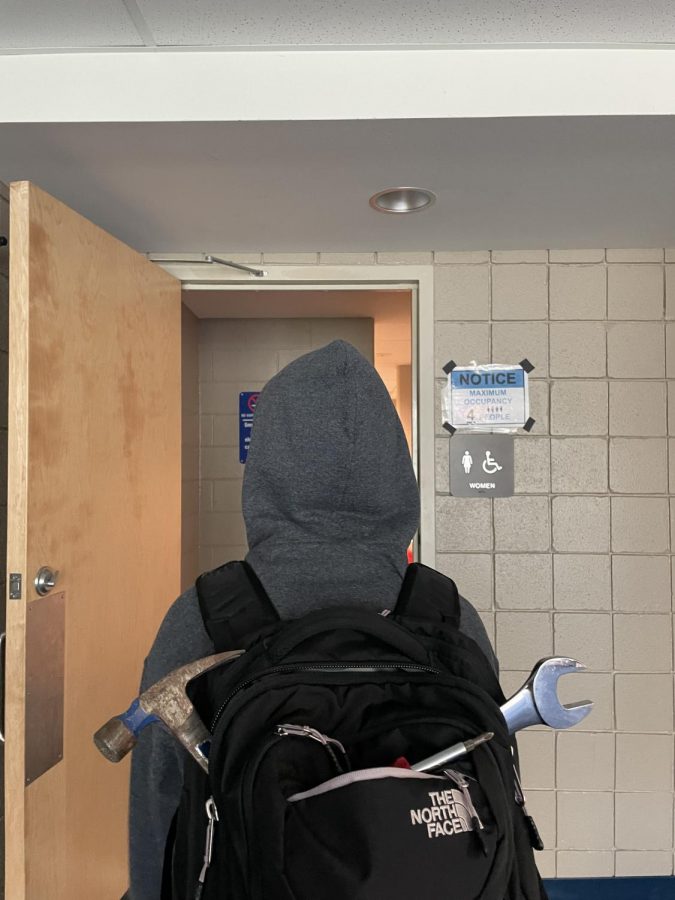
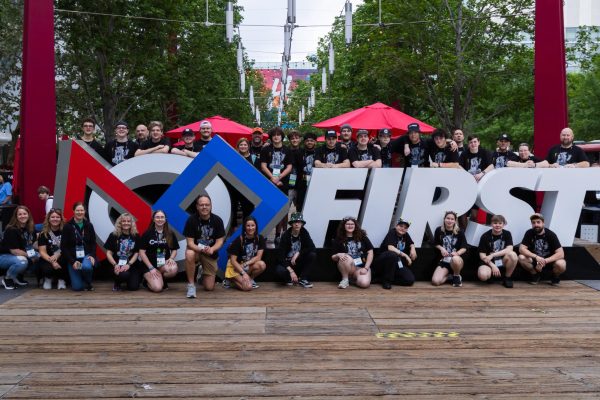
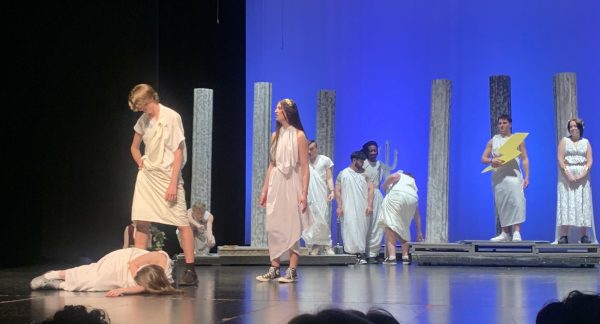
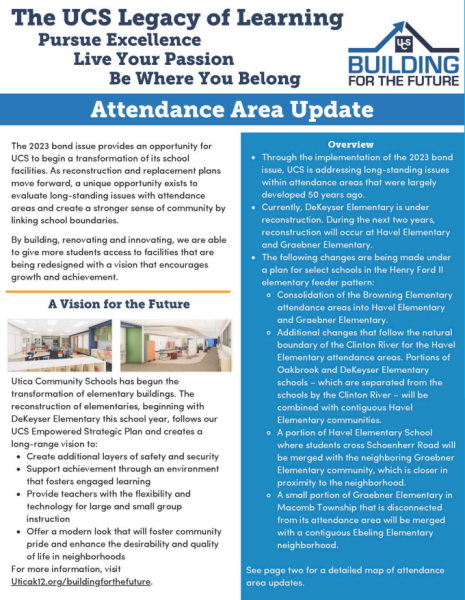
![Bringing an idea to life, senior sculpture student Braden Williams begins construction on a book-based sculpture. The sculpture concept revolves around fortune telling, which Williams will evoke with a head sculpt, sporting a third eye. “It's [the eye] a bigger focus on that face. It's the main focus. Gotta put a lot of detail into that,” Williams said.](https://ikenews.com/wp-content/uploads/2025/04/IMG_3413-1-600x481.jpg)